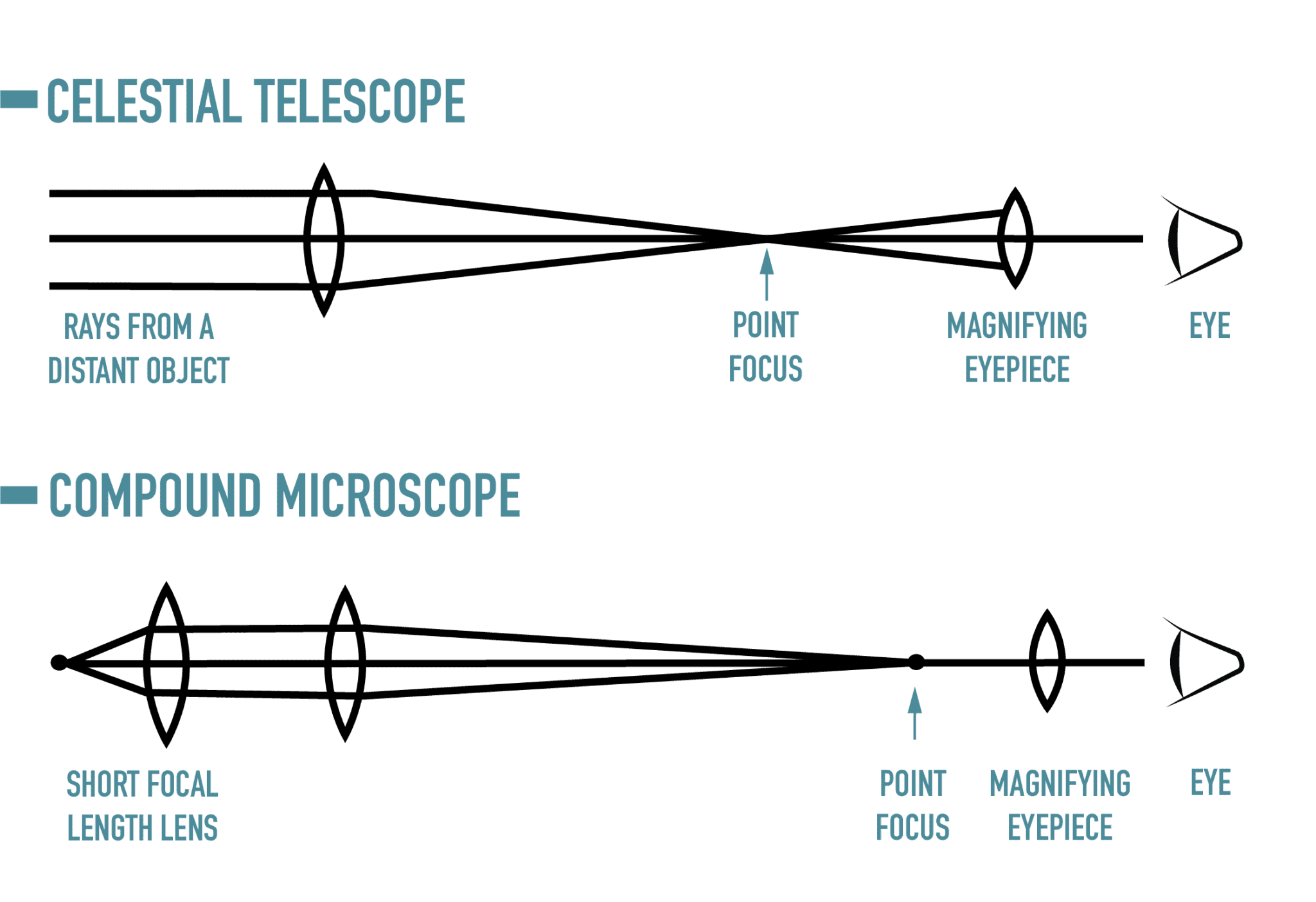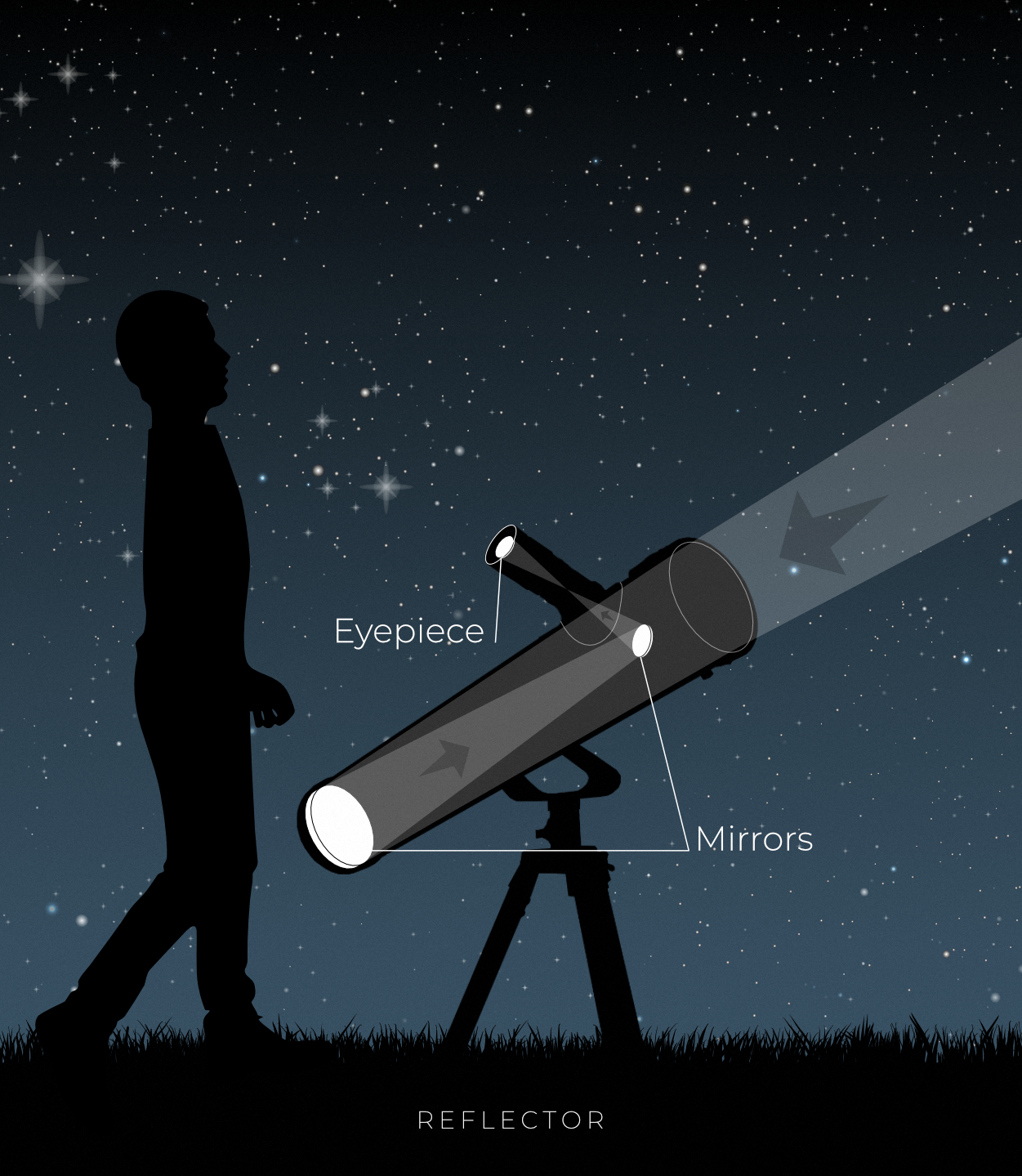

Other than open clusters, DSOs are faint. I think a little more context on Deep Sky Objects is needed to help you understand the need for more aperture. In fact, a good 100-mm refractor is very closely comparable to a good 130-mm reflector both for deep-sky and planetary observing. That's primarily because mirrors absorb and scatter more light than lenses. And given identical aperture, a refractor is considerably better than a reflector for deep-sky observing - and everything else, too. The largest refractor in common use by amateurs is 5 inches (127 mm), though there are a number of excellent 6-inchers on the market.Īs you can see, there is a small region where refractors and reflectors overlap.
#Refractor vs reflector professional#
The largest successful refractor ever built has a main lens 40 inches across, which is tiny compared to a typical professional reflector and smaller than a number of amateur-owned reflectors. Refractors, by contrast, work superbly in apertures well under 1 inch (25 mm), but become both prohibitively costly and prohibitively long as the design scales up. Conversely, reflectors scale up very gracefully even 20-inch behemoths are quite cheap compared to (say) automobiles. Moreover, the design runs into some technical problems (too complicated to explain here) as you scale it down. But the main virtue of reflectors is low cost, and a 114-mm mirror is already so cheap that there's little point in going smaller. It's possible to build smaller reflectors there are in fact some good 3- and 4-inchers on the market. The smallest common aperture for a reflector is 4.5 inches (114 mm). The larger aperture allows reflectors to gather more light, which is by far the most important factor for deep-sky observing. So yes, a reflector is (kind of) better than a refractor for deepsky but not because of the optical design, but because of the diameter you get for your money.Įdited by Wouter1981, 29 April 2021 - 05:41 AM.Īs radiofm74 says above, the only reason that reflectors are generally better than refractors for deep-sky observing is that they the great majority of reflectors have bigger aperture (wider main mirrors) than the great majority of refractors (main lenses). well you can buy a shed and fill it with telescopes for a 300mm refractor. You can easily get a 500mm reflector for that money and that telescope will outperform any 200mm refractor. Around 200mm a refractor could easily be 10x the price of a reflector. Unless the refractor is junk, the view wouldn't be much worse than the 130mm reflector, it even could be better depending on the quality of the 2 telescopes! But ultimatly, the size of the telescope will be THE factor that allows you to see more and once you reach 150mm, the price difference between the 2 designs gets really noticable. In your example, I would prefer a 100mm refractor over a 130mm reflector.

It's not about what's better, it's about what is cheaper in bigger sizes. I'm wondering how much worse is a 100mm refractor than a 130mm reflector for deep sky objects? Also what are some good brands for refractors and reflectors? (i heard many brands nowadays use a spherical mirror and not parabolic for the reflectors) Hi, i heard that reflectors are better for deep sky objects than refractors. And yes, do check in the specs whether the mirror is spherical or parabolic… that's an important consideration.Įdited by radiofm74, 29 April 2021 - 10:01 AM. Avoid "Bird-Jones" designs like the Powerseeker 127EQ. Great beginner scope in my view and it also comes on an adequate mount (AS important if not more than the tube!). I have and love Synta's 6", F/5 Newtonian: that's Celestron's OMNI 150 XLT or the Skywatcher equivalents. Unless I'm mistaken: Synta -> Celestron, Skywatcher, Orion GSO-> Explore Scientific, Bresser, TSO…

Most of the gear you see is produced by one or two big producers in China (Synta, GSO) and sold under various brand names. "Brands" are not a good reference in the astronomy world. I don't have the figures handy, or the experience with a 100mm refractor – others will be able to tell you how much of a difference it makes.

To your question: 130mm gather significantly more light than 100mm, but for a refractor that's clean aperture while in the case of the Newtonian you need to subtract the central obstruction. The point is that to see DSOs you need aperture, and a 6" Newtonian is considerably cheaper (and way lighter -> can go on a lighter and cheaper mount) than a good-quality 6" refractor. I don't think that reflectors are inherently superior to refractors for DSO.


 0 kommentar(er)
0 kommentar(er)
